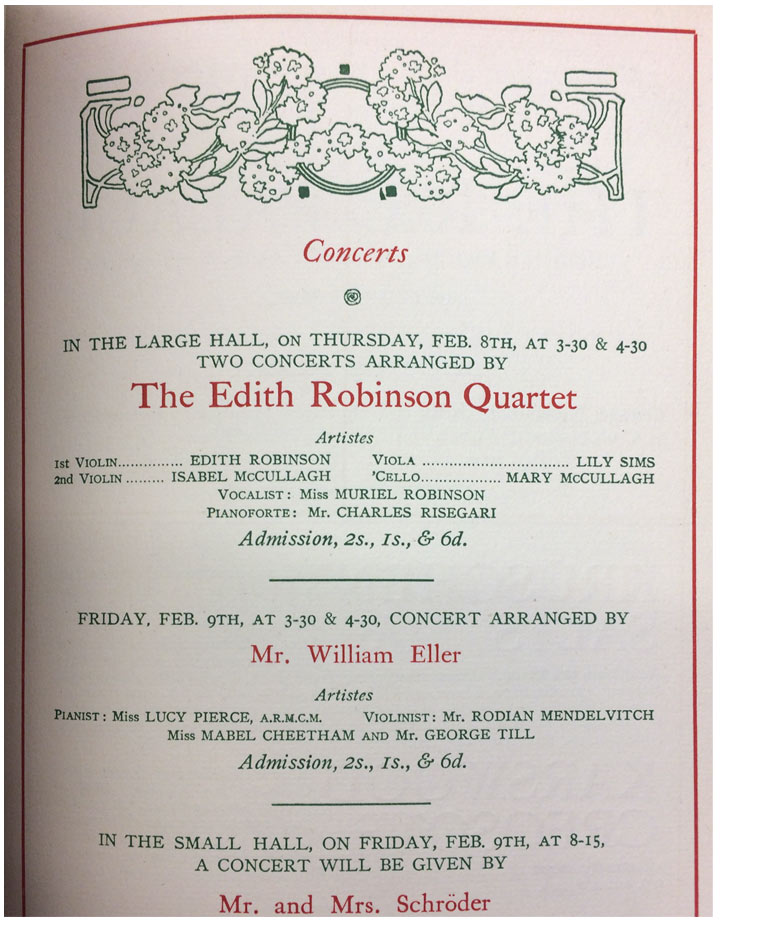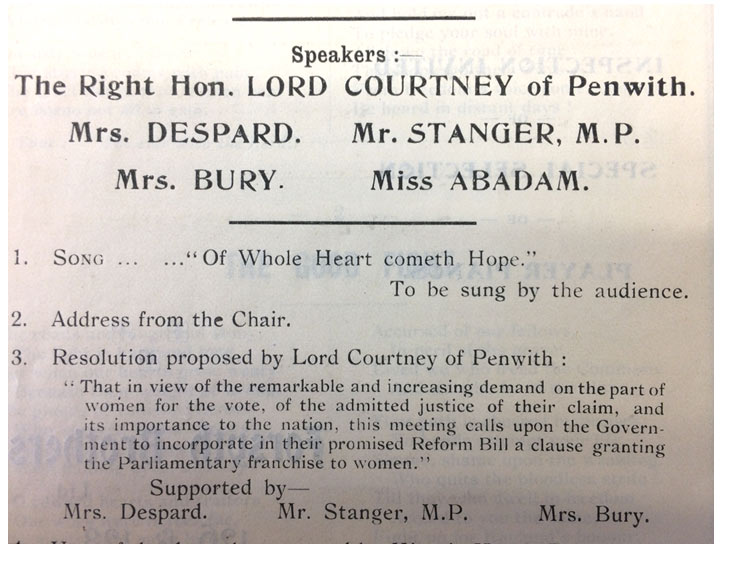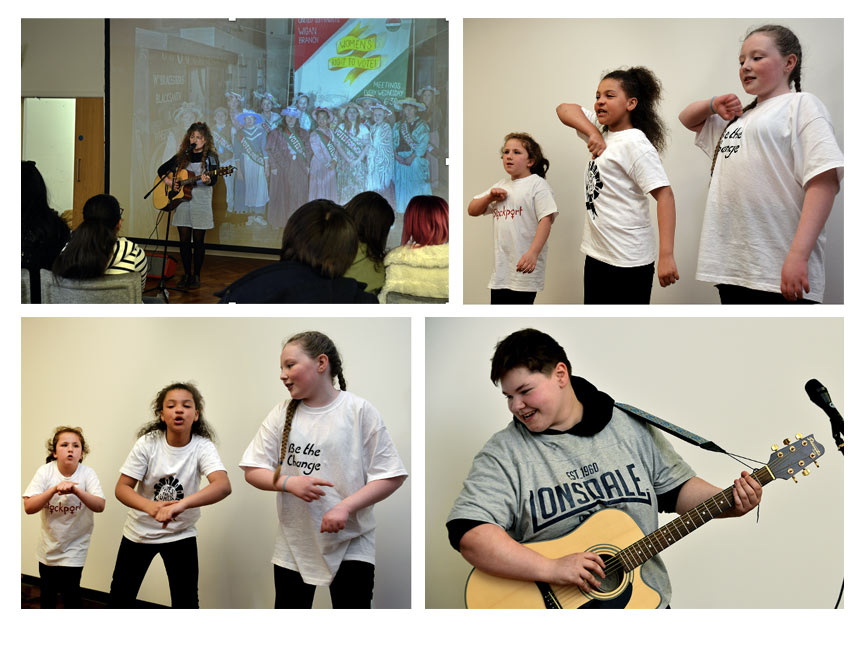
Music
The role of music as a campaign method was used slightly differently from visual arts and poetry. As can be seen from this extract from the Women’s Suffragists Bazaar handbook, live music alongside theatre performances were going to be featured at the event.
The role of music in this instance was to be that of pure entertainment possibly to try and entice more attendees to the event and engage them longer where they might hear more about the NUWSS’s work and acquire more campaign material.
What distinguished the suffragists from the suffragettes was how they interacted with their political opponents. While the suffragists might vandalise and disrupt their opponent’s livelihoods, the suffragists would engage in debates with the anti-suffragist league. This was a risky strategy. If a debater in favour of equal suffrage was to fail, all the event would have achieved is giving a platform to the anti-suffragist cause. The suffragists seemed to produce a pool of very talented speakers. Lydia Becker, one of the first suffragists, was exceptional in giving debates and speeches in favour of women’s suffrage and toured the country doing so.

Music, however, was also used at the start of meetings, as can be seen by this extract from a debate agenda where the first item is for everyone present to sing, ‘Of whole Heart Cometh Hope’. The purpose of this singing together was to establish a sense of unity through unifying voices, the words and melody would be rousing and uplifting for the suffragists and (cheekily) intimidate the anti-suffragists who were about to debate them.
The Game Changer groups worked with musician Holly Phelps (known professionally as IORA) to write their own songs and create an anthem. Phelps devised a call and response song based on lyrics written by the young people, this was then sang for the audience at the Bazaar to join in, establishing that communal singing so important to the suffragists. The young people also performed live for the Bazaar event playing their own instruments and showcasing their own choreography:

